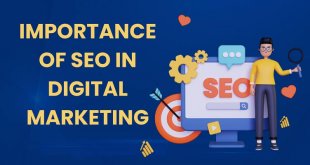Hey guys, in this article, we are going to discuss how SEO and UX work together to help improve your web conversion. So keep reading.
The vital elements of a successful eCommerce business are creative digital marketing strategies, seamless web design and UX, and effective SEO techniques. The adage less is more has never been more true in great UX experience and web design.
A thriving eCommerce business deploys simple navigation in its websites. On the other hand, search engine optimization (SEO) focuses on ranking the site in search engine results pages (SERP).
These three elements collaborate to improve conversion that leads to a purchase, availed service, and a boost in sales.
Ultimately, an intuitive web design and visitor experience would veer away from complicated actions leading to a sale. In addition, an excellent website can likewise integrate search optimization tactics to provide a fantastic user experience.
Here are ways how SEO and UX work together to improve web conversion.
How SEO And UX Work Together:
Gain insight into your market to identify design and UX preferences and SEO services that work
Knowing and understanding your visitors is a step closer to the content they expect and consume. Therefore, web design and UX must intertwine with the expectations and behaviors of your audience.
Besides this, if you need help to take your digital product to the next level then the UI UX design agency is here to provide you with the best user experience!
Experts from SEO services agencies suggest that the gap can be bridged by conducting website viability studies, A/B testing, surveys, and online behavior monitoring. Findings from these activities should be the basis of the design and web navigation.
Online behavior can likewise identify keywords in users’ searches. These long-tail keywords, when identified and targeted, can improve rankings. In addition, precise keywords linked to your website can build brand loyalty. As a result, it can increase conversions in the long run.
Simplicity Is Everything
Utilize straightforward instructional text to cater to visitors that have a short attention span. Integrate simple instructional text, microcopy, and tips throughout your pages.
On top of simplicity, all the information must be contained on one page. It is off-putting and inconvenient for a buyer to look for information on the following page or elsewhere. The likelihood of conversion shrinks with the amount of time spent browsing through the website. Call-to-action (CTA) must be accessible and in your face.
Location Sensitivity And Local SEO
Integrate dynamic content into the mix. For example, users should not waste time on your website only to find a geographic barrier to shipping, availability, and local currency conversion by checkout.
Instead, your website must deploy location sensitivity tactics that streamline and adjust UX by showcasing products available to the visitor’s current location.
Local SEO enhancement is possible via IP addresses, zip codes, country selection on the onset, and geolocation identification.
Website dynamic content enhances SEO through UX improvement. Also, a fantastic UX in your website contributes to an increase in SERPs, leading to web conversion and sales.
Good Old-fashioned Aesthetics To Simplify Buyer Decision-making
Simplify decision-making by integrating visual design with the content. An effective way to sell is to showcase items through top-notch and compelling images and videos.
A straightforward and less wordy interface increases the likelihood of buying, repurchasing, and recommending your shop to a friend.
In addition, video and visual elements increase customer dwell time on your website. The longer a visitor stays on your site, the higher it’s rank on SERPs.
Improve Mobile Experience
Everybody is on their phones, and they spend half of their days on them. Therefore, your website must be mobile-responsive and friendly. Content must be designed in such a way that everything is on one page with CTA buttons accessible.
Navigation must be streamlined to tailor-fit a mobile phone interface with thumb-friendly buttons. On top of the impeccable mobile experience, page loading time must also be short enough to eliminate page abandonment.
A user-friendly web design and quick page loading time enhance website SEO.
Conclusion
Ultimately, there are various tools and means to enhance SEO and UX to impact conversion rate positively. These strategies are at your disposal and must be utilized intelligently to stay ahead of the eCommerce game.
I hope you liked this article on how SEO and UX work together to help improve your web conversion. If you like this article then please share it with your friends on Facebook and Instagram.
 free html design Free html design templates
free html design Free html design templates






